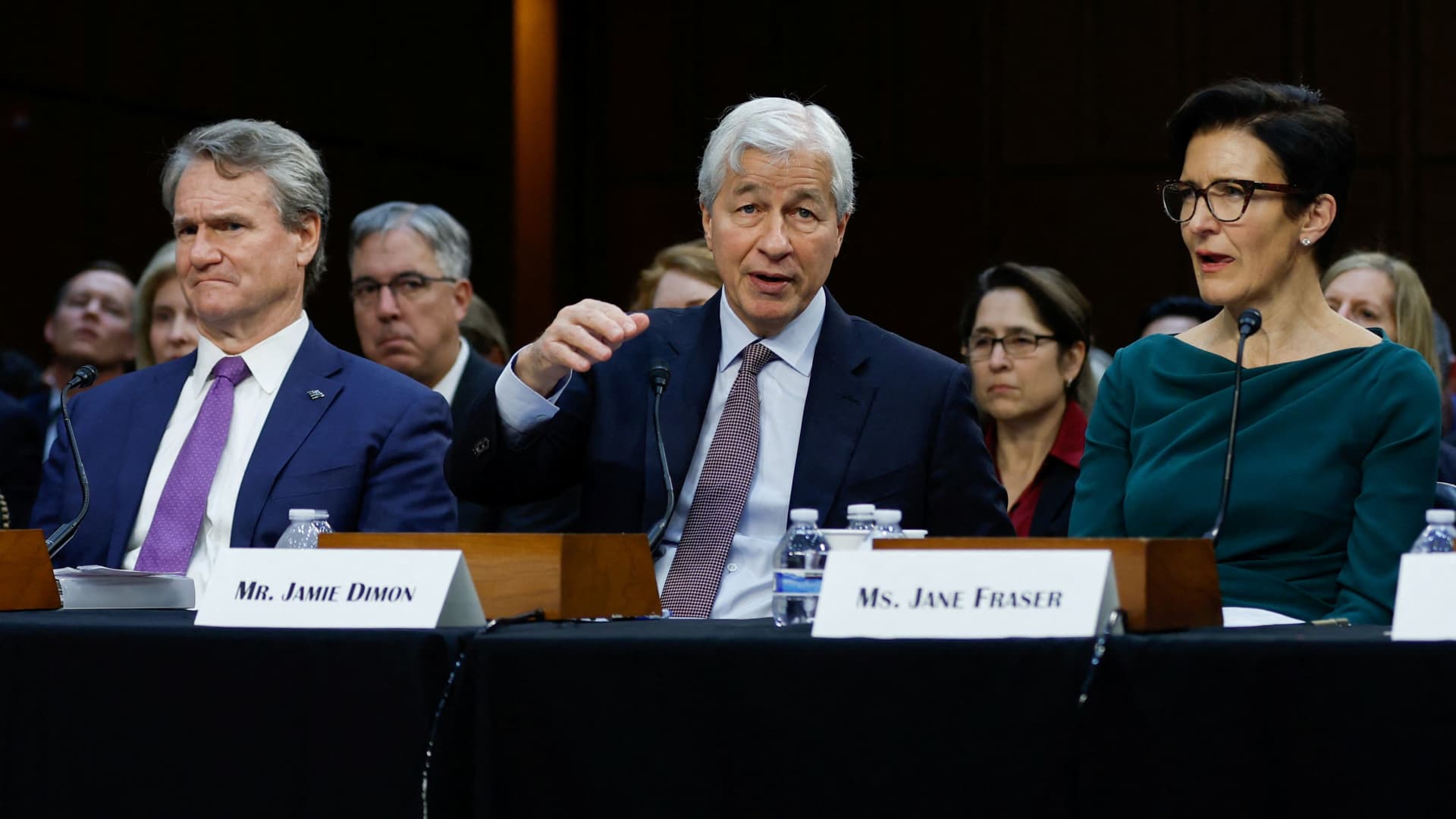Products You May Like
Wall Street CEOs on Wednesday pushed back against proposed regulations aimed at raising the levels of capital they’ll need to hold against future risks.
In prepared remarks and responses to lawmakers’ questions during an annual Senate oversight hearing, the CEOs of eight banks sought to raise alarms over the impact of the changes. In July, U.S. regulators unveiled a sweeping set of higher standards governing banks known as the Basel 3 endgame.
“The rule would have predictable and harmful outcomes to the economy, markets, business of all sizes and American households,” JPMorgan Chase CEO Jamie Dimon told lawmakers.
If unchanged, the regulations would raise capital requirements on the largest banks by about 25%, Dimon claimed.
The heads of America’s largest banks, including JPMorgan, Bank of America and Goldman Sachs, are seeking to dull the impact of the new rules, which would affect all U.S. banks with at least $100 billion in assets and take until 2028 to be fully phased in. Raising the cost of capital would likely hurt the industry’s profitability and growth prospects.
It would also likely help nonbank players including Apollo and Blackstone, which have gained market share in areas banks have receded from because of stricter regulations, including loans for mergers, buyouts and highly indebted corporations.
While all the major banks can comply with the rules as currently constructed, it wouldn’t be without losers and winners, the CEOs testified.
Those who could be unintentionally harmed by the regulations include small business owners, mortgage customers, pensions and other investors, as well as rural and low-income customers, according to Dimon and the other executives.
“Mortgages and small business loans will be more expensive and harder to access, particularly for low- to moderate-income borrowers,” Dimon said. “Savings for retirement or college will yield lower returns as costs rise for asset managers, money-market funds and pension funds.”
With the rise in the cost of capital, government infrastructure projects will be more expensive to finance, making new hospitals, bridges and roads even costlier, Dimon added. Corporate clients will need to pay more to hedge the price of commodities, resulting in higher consumer costs, he said.
The changes would “increase the cost of borrowing for farmers in rural communities,” Citigroup CEO Jane Fraser said. “It could impact them in terms of their mortgages, it could impact their credit cards. It could also importantly impact their cost of any borrowing that they do.”
Finally, the CEOs warned that by heightening oversight on banks, regulators would push yet more financial activity to nonbank players — sometimes referred to as shadow banks — leaving regulators blind to those risks.
The tone of lawmakers’ questioning during the three-hour hearing mostly hewed to partisan lines, with Democrats more skeptical of the executives and Republicans inquiring about potential harms to everyday Americans.
Sen. Sherrod Brown, an Ohio Democrat, opened the event by lambasting banks’ lobbying efforts against the Basel 3 endgame.
“You’re going to say that cracking down on Wall Street is going to hurt working families, you’re really going to claim that?” Brown said. “The economic devastation of 2008 is what hurt working families, the uncertainty and the turmoil from the failure of Silicon Valley Bank hurt working families.”
